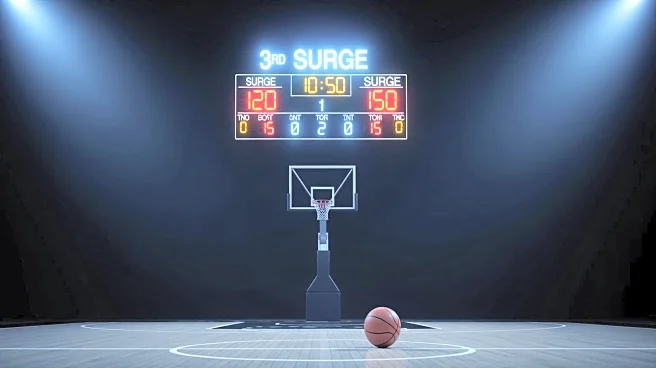What's Happening?
President Trump has accused Hamas of violating the ceasefire agreement in Gaza, following the return of a hostage's body to Israel. The Red Cross facilitated the transfer of the body, which was received
by the IDF and taken to the Health Ministry National Center of Forensic Medicine for identification. Trump emphasized the U.S. commitment to preserving the ceasefire, stating that Israel could intervene militarily if necessary. The Rafah crossing in southern Gaza remains closed until the issue of returning Israeli hostages is resolved.
Why It's Important?
The situation in Gaza remains tense, with potential implications for regional stability and U.S. foreign policy. The ceasefire violations by Hamas could lead to increased military action by Israel, affecting civilian safety and humanitarian conditions in Gaza. The U.S. administration's involvement underscores its role in Middle Eastern diplomacy and the potential impact on U.S.-Israel relations. The closure of the Rafah crossing affects humanitarian aid and movement, highlighting the fragile nature of the ceasefire agreement.
What's Next?
The identification of the returned hostage's body is underway, and formal notification will be delivered to the family. The U.S. and Israel are closely monitoring the situation, with potential military responses if ceasefire violations continue. Diplomatic efforts may intensify to ensure compliance with the ceasefire and address humanitarian concerns. The reopening of the Rafah crossing depends on resolving the hostage situation, which could influence future negotiations and regional dynamics.









